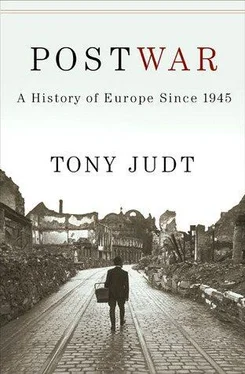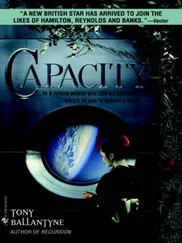Stent, Angela. Russia and Germany Reborn: Unification, the Soviet Collapse, and the New Europe . Princeton: Princeton University Press, 1999.
Szporluk, Roman. Russia, Ukraine, and the Breakup of the Soviet Union . Stanford, CA: Hoover Institution Press, 2000.
Zelikow, Philip, and Condoleezza Rice. Germany Unified and Europe Transformed: A Study in Statecraft . Cambridge, MA: Harvard University Press, 1995.
Chapter XXI: The Reckoning
After Milosevic: A Practical Agenda for Lasting Balkans Peace . Brussels: International Crisis Group, 2001.
Andjelic, Neven. Bosnia-Herzegovina: The End of a Legacy . London: Frank Cass, 2003.
Biserko, Sonja. In the Name of Humanity . Belgrade: Helsinki Committee for Human Rights in Serbia, 1996.
Burg, Steven L., and Paul Shoup. The War in Bosnia-Herzegovina: Ethnic Conflict and International Intervention . Armonk, NY: M.E. Sharpe, 1999.
Drakulić, Slavenka. The Balkan Express: Fragments from the Other Side of War . New York: W. W. Norton, 1993.
———. Café Europa: Life after Communism . New York: W. W. Norton, 1997. Frydman, Roman, et al. The Privatization Process in Central Europe . Budapest: Central European University Press, 1993.
———. The Privatization Process in Russia, Ukraine, and the Baltic States . Budapest: Central European University Press, 1993.
Gal, Susan, and Gail Kligman. The Politics of Gender After Socialism: A Comparative-Historical Essay . Princeton: Princeton University Press, 2000.
Holbrooke, Richard. To End a War . New York: Random House, 1998.
Holmes, Leslie. The End of Communist Power: Anti-Corruption Campaigns and Legitimation Crisis . New York: Oxford University Press, 1993.
Jones, Derek C., and Jeffrey B. Miller. The Bulgarian Economy: Lessons from Reform During Early Transition . Aldershot, UK: Ashgate, 1997.
Krastev, Ivan. Shifting Obsessions: Three Essays on the Politics of Anticorruption . Budapest: Central European University Press, 2004.
Linz, Juan J., and Alfred C. Stepan. Problems of Democratic Transition and Consolidation: Southern Europe, South America, and Post-Communist Europe . Baltimore: Johns Hopkins University Press, 1996.
McFaul, Michael, and Kathryn Stoner-Weiss. After the Collapse of Communism: Comparative Lessons of Transition . New York: Cambridge University Press, 2004.
Medvedev, Roy. Post-Soviet Russia: A Journey Through the Yeltsin Era . New York: Columbia University Press, 2000.
Meier, Andrew. Black Earth: Russia After the Fall . London: HarperCollins, 2004.
Mungiu, Alina, and Ivan Krastev. Nationalism After Communism: Lessons Learned . Budapest: Central European University Press, 2004.
Pinson, Mark, and Roy P. Mottahedeh. The Muslims of Bosnia-Herzegovina: Their Historic Development from the Middle Ages to the Dissolution of Yugoslavia . Cambridge, MA: Harvard University Press, 1996.
Reddaway, Peter, and Dmitri Glinski. The Tragedy of Russia’s Reforms: Market Bolshevism Against Democracy . Washington, D.C.: United States Institute of Peace Press, 2001.
Remnick, David. Resurrection: The Struggle for a New Russia . New York: Vintage Books, 1998.
Rupnik, Jacques, ed. International Perspectives on the Balkans . Clementsport, Nova Scotia: Press of the Pearson Peacekeeping Centre, 2003.
Siegelbaum, Lewis H., and Daniel J. Walkowitz. Workers of the Donbass Speak: Survival and Identity in the New Ukraine, 1989-1992 . Albany, NY: SUNY Press, 1995.
Simms, Brendan. Unfinest Hour: Britain and the Destruction of Bosnia . London: Penguin Books, 2002.
Smith, Graham. Nation-Building in the Post-Soviet Borderlands: The Politics of National Identities . Cambridge: Cambridge University Press, 1998.
Soros, George. Underwriting Democracy: Encouraging Free Enterprise and Democratic Reform Among the Soviets and in Eastern Europe . New York: Public Affairs, 1991.
Stark, David Charles, and László Bruszt. Postsocialist Pathways: Transforming Politics and Property in East Central Europe . Cambridge: Cambridge University Press, 1998.
Szporluk, Roman. National Identity and Ethnicity in Russia and the New States of Eurasia . Armonk, NY: M.E. Sharpe, 1994.
Teitel, Ruti G. Transitional Justice . New York: Oxford University Press, 2000.
Tismaneanu, Vladimir. Fantasies of Salvation: Democracy, Nationalism, and Myth in Post-Communist Europe . Princeton: Princeton University Press, 1998.
Ugrešic, Dubravka. The Culture of Lies: Antipolitical Essays . University Park: Pennsylvania State University Press, 1998)
Verdery, Katherine. What was Socialism, and What Comes Next? Princeton: Princeton University Press, 1996.
Wedel, Janine R. Collision and Collusion: The Strange Case of Western Aid to Eastern Europe, 1989-1998 . New York: St. Martin’s Press, 1998.
Chapter XXII: The Old Europe—and the New
Alam, Asad, et al. Growth, Poverty and Inequality: Eastern Europe and the Former Soviet Union . Hernden, VA: World Bank Publications, 2005.
Alesina, Alberto, and Edward Glaeser. Fighting Poverty in the U.S. and Europe: A World of Difference . Oxford: Oxford University Press, 2004.
Judt, Tony. A Grand Illusion? An Essay on Europe . New York: Hill and Wang, 1996.
Lieven, Anatol, and Dmitri Trenin. Ambivalent Neighbors: The EU, NATO and the Price of Membership . Washington, D.C.: Carnegie Endowment for International Peace, 2003.
Mandelbaum, Michael. The Dawn of Peace in Europe . New York: Twentieth Century Fund Press, 1996.
Mattli, Walter. The Logic of Regional Integration: Europe and Beyond . New York: Cambridge University Press, 1999.
Murphy, Alexander. The Regional Dynamics of Language Differentiation in Belgium . Chicago: University of Chicago Press, 1988.
Ost, David. The Defeat of Solidarity: Anger and Politics in Post-Communist Europe . Ithaca, NY: Cornell University Press, 2005.
Perrineau, Pascal, Gérard Grunberg, and Colette Ysmal. Europe at the Polls: The European Elections of 1999 . New York: Palgrave, 2002.
Wallace, William. The Dynamics of European Integration . London, Pinter, 1990.
Chapter XXIII: The Varieties of Europe
Calleo, David P., and Philip H. Gordon. From the Atlantic to the Urals: National Perspectives on the New Europe . Arlington, VA: Seven Locks Press, 1992.
Judt, Tony, and Denis Lacorne. Language, Nation, and State: Identity Politics in a Multilingual Age . New York: Palgrave, 2004.
Nelson, Brian, et al. The Idea of Europe: Problems of National and Transnational Identity . New York: Berg, 1992.
Nora, Pierre. Realms of Memory: Rethinking the French Past . New York: Columbia University Press, 1996.
Sassen, Saskia. The Global City: New York, London, Tokyo . Princeton: Princeton University Press, 2001.
Wise, Michael Z. Capital Dilemma: Germany’s Search for a New Architecture of Democracy . New York: Princeton Architectural Press, 1998.
Chapter XXIV: Europe as a Way of Life
Balibar, Etienne. We, the People of Europe? Reflections on Transnational Citizenship . Princeton: Princeton University Press, 2004.
Calleo, David P. Rethinking Europe’s Future . Princeton: Princeton University Press, 2001.
Edwards, Michael. Future Positive: International Cooperation in the Twenty-First Century . London: Michael Edwards, 2004.
Читать дальше












